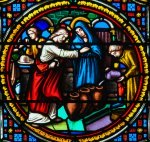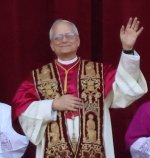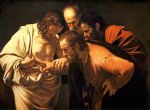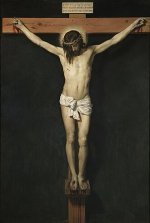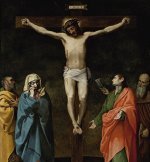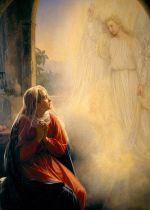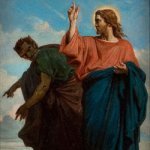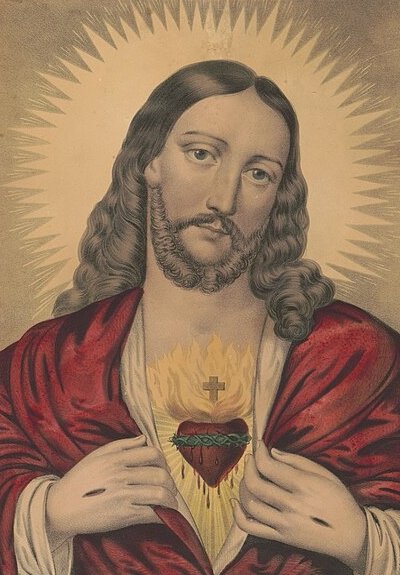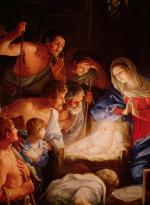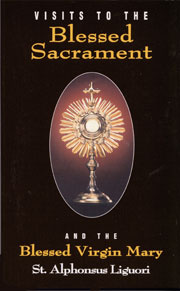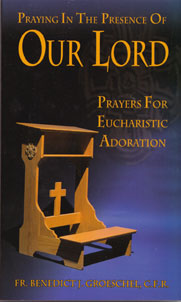BLESSED SACRAMENT PRAYERS
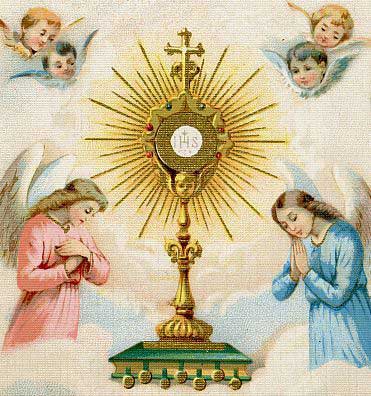
Prayer and meditation before our Lord in the Blessed Sacrament are great ways to spend some special time with Him. You can ask Him for graces for yourself or for loved ones, reflect on His Word, or just keep Him company! And it’s no bother for Jesus. In fact, He very much wants to see you!
We Catholics believe that at Mass bread and wine truly become the body, blood, soul and divinity of our Lord Jesus Christ, during the Consecration by the priest. The consecrated bread, the Eucharist, in the form of wafers we call hosts, becomes what is known as the Blessed Sacrament.
Jesus appears to us at that point in the form of bread and wine. Yet, as we believe following the doctrine of what is called the Real Presence, our Lord is as present to us here as He was to his apostles in Palestine 2000 years ago!
Note also that, although Our Lord’s blood is given out as wine during Communion, we consider that the consecrated Host comprises both our Lord’s Body and blood, as mentioned above. (After all, could He be present to us in His body without His blood?)
Those consecrated hosts not used in Holy Communion at Mass are also the Blessed Sacrament and are placed in a special box known as the tabernacle to be given out later to the sick or the dying who cannot attend Mass.
A host can also be exposed on the altar in what is known as a monstrance, an ornate vessel similar to the one shown above, for public worship in what is called Eucharistic adoration. Many churches have specific times during the day for adoration of our Lord exposed in the monstrance, often in the afternoons, as shown here for the United States, and here for world-wide listings.
This devotion is also known as the Rite of Eucharistic Exposition and Benediction. It can include homilies by a priest, readings from Scripture, hymns such as O Salutaris Hostia and Tantum Ergo, and time for quiet adoration, after which the priest blesses the congregation in a Benediction of the Blessed Sacrament, followed by The Divine Praises.
Many people also spend time with Jesus in what we call a “holy hour,” which can include the liturgical elements mentioned above. More often it is a time just for silent adoration. A good way to spend an hour with our Lord in this manner is to divide your time into 15-minute segments each devoted to meditation in a spirit first of adoration, then contrition, thanksgiving, and, finally, supplication. Your time spent with our Lord in a Holy Hour can be more important than you imagine, as discussed here.
Some parishes also have what we call Perpetual Adoration, in which our Lord is exposed in the monstrance over a longer period of time uninterrupted, as in what is known as a forty-hour devotion, or even 24 hours a day, seven days a week.
Many of them, however, no longer provide Perpetual Adoration but rather reserve the Blessed Sacrament in an enclosed tabernacle so that people can pray in its presence without the need for volunteers to be in constant attendance (as must be the case when the Blessed Sacrament is exposed).
It is important to point out in this regard that Eucharistic adoration includes our visits to our Lord in the Blessed Sacrament in the tabernacle as well as in the monstrance on the altar. Yet, as Father John Hardon, a champion of Christ in the Real Presence as is seen in this excellent website once said, we as Catholics should try to pray as much as possible before the Blessed Sacrament exposed on the altar.
Countless religious, including many saints and popes over the centuries, have extolled the great spiritual blessings and benefits we can derive from Eucharistic adoration. Pope John Paul II calling it “a great treasure of the Catholic faith” noted that “it nourishes social love” and encouraged all Christians to visit Jesus regularly in the Blessed Sacrament as “we are all called to abide in the presence of God.”
Speaking of being called, what is so important for us to realize is that Christ calls us, each one of us to visit Him in Eucharistic adoration much as He called His apostles! Our Lord said on the cross “I thirst” and, indeed, He expressed to Sr. Josepha Menendez, a Spanish nun in the 1920’s, His constant thirst for souls! Jesus is waiting for us in tabernacles all over the world “full of pity and of love” as St. Alphonsus Liguori wrote in this well known prayer. (This great theologian also wrote a wonderful prayer to the Blessed Mother that you can recite after each visit.)
Think of it! Our Lord Jesus Christ could calm the winds and the waves with a rebuke (Mk 5:35-41). He could turn a meal for one into one for 5000 (Mt 14:13-23). He could even heal people of their physical afflictions with just a touch (such as in Lk:12-14). This very same God of such power and majesty makes Himself present and readily available in countless altars and tabernacles in churches around the world to be with each one of us, indeed to be with you!
So, how should we “revere this wondrous gift,” as the Blessed Sacrament is called in the famous hymn Jesus My Lord My God My All? Approach Christ, as always, with humility, contrition and love. Make your heart a vessel into which He can pour his grace. Unite your troubled heart with His Sacred Heart and ask Him for the wisdom and graces you need in difficult situations!
Treat Him as you would one of your closest friends, with love and respect. Feel free to tell Him whatever troubles or pleases you (silently or very quietly, Silence is key for concentration in this intimate setting.) You can also pray whatever prayers you’d like: the Rosary, the Anima Christi, An Act of Spiritual Communion, or any number of very good Blessed Sacrament prayers. If you’d prefer, just give our Lord your heartfelt thoughts in mediation or reflection. Or, if you’re feeling particularly harried or hurried, you can just keep him company!
In addition to a prayer book, you might want to bring along some good spiritual reading or scripture for reflection. Keep in mind that, although this should not make you boastful or proud, the more you learn about our faith through such reading the deeper your experience with our Lord can be in the reflections he can inspire within you through His Spirit.
It might help to bring a notebook to jot down some of these thoughts. The renowned Archbishop Fulton J. Sheen and Pope John Paul II both did this. Indeed, Bishop Sheen prepared his homilies in the presence of the Blessed Sacrament because, as he put it, “the most brilliant ideas come from meeting God face to face.”
Bishop Sheen referred to his daily time spent before the Blessed Sacrament as his “hour of power” for spiritual renewal. Don’t feel, however, that you can’t spend shorter periods of time with him, if you’re really stressed. Even 10 or 15 minutes with Him can help make a trying day that much easier to bear!
Again, don’t feel like you’re wasting time with our Lord if you haven’t said numerous prayers. Just give Him your sincere love and devotion. St. Jean-Marie Vianney, the Cure of Ars once asked one of his parishioners who spent hours in adoration of the Blessed Sacrament, “My good father, what do you say to our Lord in those long visits you pay Him every day?” “I say nothing to Him,” was the man’s moving reply; “I look at Him and He looks at me.”
FROM OUR BOOK AND GIFT STORE
OR CAFE PRESS STORE!
Go From Blessed Sacrament Prayers
to Home Page
THE FIVE FIRST SATURDAYS IS A DEVOTION NEEDED NOW MORE THAN EVER! FIND OUT MORE HERE
THE SAINT MICHAEL PRAYER AND THE ROSARY
ARE ALSO POWERFUL PRAYERS TO HELP US THROUGH THESE VERY TURBULENT TIMES!
HIGHLY RECOMMENDED! DELIVERANCE PRAYERS,
A BOOK FROM SENSUS TRADITIONIS PRESS
(A GREAT PUBLISHER HELPING US FIGHT OUR MANY SPIRITUAL BATTLES NOWADAYS)!
CHECK OUT OUR PODCAST PAGE AND OUR YOUTUBE CHANNEL FOR INSPIRING CONTENT

Two Great Prayer Resource Available in our Web Store!
(Click on each book below for more information.)


